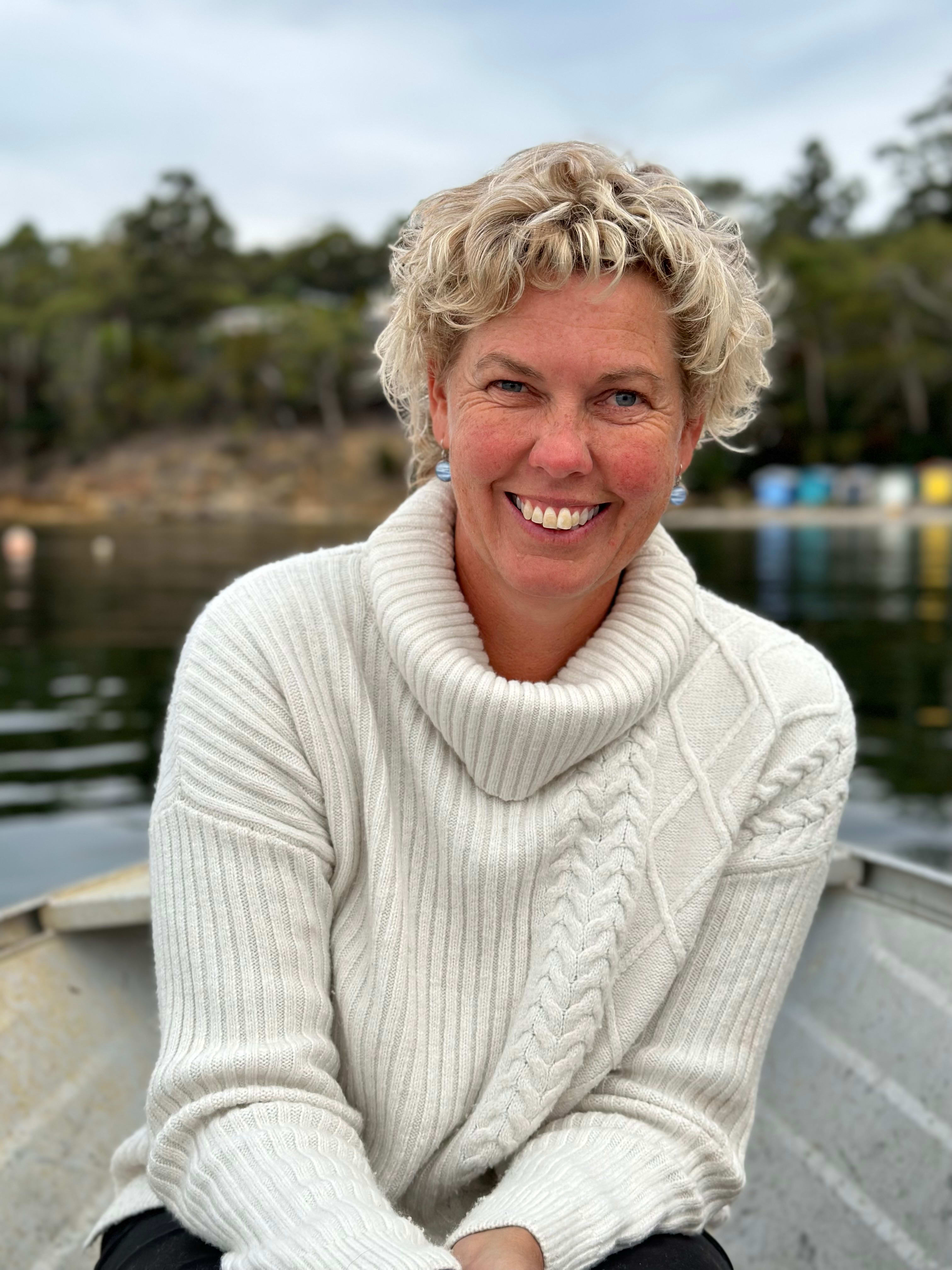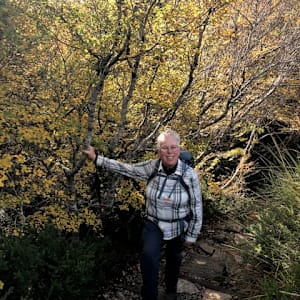Tim Schmidt and I met at Farmgate Market, where we are regular stallholder neighbours. Tim makes the fortnightly trek from his family property Woodlands Farm, just outside Deloraine, to Hobart to sell his hemp products. Between customers, we chat, and I've learned a lot about hemp.
I remember some years ago looking at recipes from overseas that used hemp as an ingredient and being frustrated that it wasn't available in Australia. Hemp's association with marijuana meant its use here was restricted and unavailable for human consumption. It took some persistent lobbying over many years for legislation to change, and it wasn't until late 2017 that edible hemp found its way onto Australian retail shelves.
Schmidt has been farming hemp for over 10 years, and I was curious how he started growing a crop that at the time had restricted use. Woodland Farm is low-lying, and the area is particularly wet over winter. After trialling several crops, he needed one better suited to these conditions. Ideally, the crop could be planted later in the season once the ground had dried out a little. He came across hemp, a relatively unknown crop in Australia and started growing it for use in fibre production.
These days Tim Schmidt is the President of the Australian Hemp Council and a passionate advocate for the Tasmanian and Australian hemp industry. Speaking with him, the potential of hemp becomes obvious. One of the aims of the council is to advocate the use of the entire plant: the seeds for food, the flowers for cannabidiol (CBD) extraction, the stalk for fibre and the leaves for industrial applications (everything from car parts to insulation batts and silicon chips). Environmentally, the carbon sequestration properties of hemp are promising.
The Schmidt's family-run enterprise currently produces edible hemp under its Tassie Hemp Shop brand (thetassiehempshop.com.au), selling hemp hearts, oil made from the pressed seeds and flour produced from the outer husk of the seed. Facilities on the mainland processed the hemp until about three years ago, when Forager Foods, best known for freeze-dried products, constructed a facility in Deloraine and was able to dehull the hemp seeds. The oil is also pressed locally, at 41 Degrees South Salmon Farm.
Schmidt says all of the hemp processing now takes place within a few kilometres of the farm.
It's an exciting time for hemp. Tim Schmidt believes it is about to become a much larger industry. Increased financial investment in research and development is discovering an ever-increasing range of applications for the plant. It's certainly exciting for Tasmania, with hemp aligning well with the state's clean, green and niche-product branding.
There's still plenty of work to be done though. Legislative change is required to remove or amend restrictions surrounding growing and selling hemp products. Similarly, consumer awareness of hemp is relatively low. At both the political and consumer level, there is still a degree of confusion regarding hemp's connection to marijuana, and the Australian Hemp Council is working to distance the product from this association.
Nutritionally, hemp is a bit of a wonder product. It's high in protein, fatty acids, vitamin E and a range of minerals. These properties tend to have hemp pigeon-holed as a “health food”. Any Google search for hemp seed recipes yields the usual variety of bliss balls, hemp milk, smoothies, energy bars and vegan burgers. It has wider uses, however – hemp is versatile and can be used in the same way as other seeds and nuts, adding texture and flavour.
Hemp hearts regularly make their way into my dukkah which, as well as Tasmanian grown hemp, also includes Tasmanian hazelnuts (I use the already roasted ones from Hazelbrae Hazelnuts – hazelbrae.com.au). You might be familiar with dukkah as a condiment for dipping your bread in, but beyond this, it's incredibly versatile. Try coating vegetables such as cauliflower or eggplant with dukkah before roasting. Similarly, it's excellent rubbed on chicken or fish before grilling. Sprinkle some on hummus, avocado on toast, or eggs.
Hemp seed dukkah
40g sesame seeds
40g hemp hearts
2 tablespoons coriander seeds
1 teaspoon fennel seeds
1 teaspoon cumin seeds
1/2 teaspoon nigella seeds
1 teaspoon sea salt
70g hazelnuts, roasted
Put the sesame seeds in a dry frying pan and toast over a medium heat. Move the seeds around and keep an eye on them to ensure they don't burn. Tip the toasted seeds into a food processor. Repeat the same process with the hemp hearts.
Add the coriander, fennel and cumin seeds to the same pan and toast them over a medium heat for a couple of minutes or until the seeds are fragrant.
Add these to the food processor along with the nigella seeds, hazelnuts and salt. Use the pulse action on the food processor to blend the nuts and seeds. Take care not to overdo it – you are looking for a coarse texture rather than a powder. Store the dukkah in a glass jar or other airtight container.
Previous à la Julia columns:
Julia Matusik is the complete foodie. She has had market stalls, organised farmer’s markets, run a cafe, done postgraduate studies in gastronomy, conducted cooking classes and judged preserves and cakes at the Brisbane Show. She cooks most days and, perhaps most tellingly, she misses cooking when she goes on holiday. Julia and her husband Michael recently moved from Brisbane to Geeveston, where they now live in an 1890s farm cottage, surrounded by a seasonal rhythm far more pronounced than the life they knew in the sub-tropics. More of Julia Matusik’s writing and recipes can be found at www.juliaspantry.com.au.







